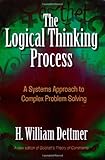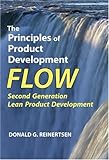 XP Day session tryout: Agreeing on Business Value with Systems Thinking
XP Day session tryout: Agreeing on Business Value with Systems Thinking
Cap Gemini will host the next Agile/XP Belgium usergroup meeting. This session is a tryout for XP Days Benelux.
We talk a lot about “maximizing business value”. We ask business people and product managers to prioritise by estimating the business value of user stories. But what exactly do we mean by business value?
Over the past few years we’ve worked with many teams to define their “Business Value Model”, a clear definition of the value a project will bring to the organisation. The exercise hasn’t always been easy but it has always brought significant benefits:
- Measurable business value in units that impact the organization (such as revenue €€€, customer satisfaction, staff retention)
- Everybody involved was more motivated because there was a clear reason for the project and they finally understood what it was
- The whole team was aligned around one vision because we had clear criteria to define success
- We came up with more innovative solutions because everybody on the team, not only “the business” or “product managers/owners” could take product-related decisions based on the model
- We could deliver a lot faster than anybody expected because the Business Value Model allowed us to easily distinguish between value-adding and non-value-adding features
- We spent a lot less time writing and prioritising user stories because we were able to derive the user stories from the value definitions
- The Business Value Model guided us to explore new product ideas: the business value model was a hypothesis that we could test and refine each time we released or performed user testing.
In this interactive tutorial you’ll apply some Systems Thinking techniques, such as the Diagram of Effects and Intermediate Objectives Map)Â to define the business value model of an example project. We’ll show you the techniques we used and discuss how you can apply those techniques in you context so that you’ll be ready to start building a business value model with your team.
Agenda:
- 18:00 – 19:00 – Welcome with snacks and drinks
- 19:00 – 21:00 – Session
Address: Bessenveldstraat 19, B-1831 Diegem, Belgium
Register here for this free event





